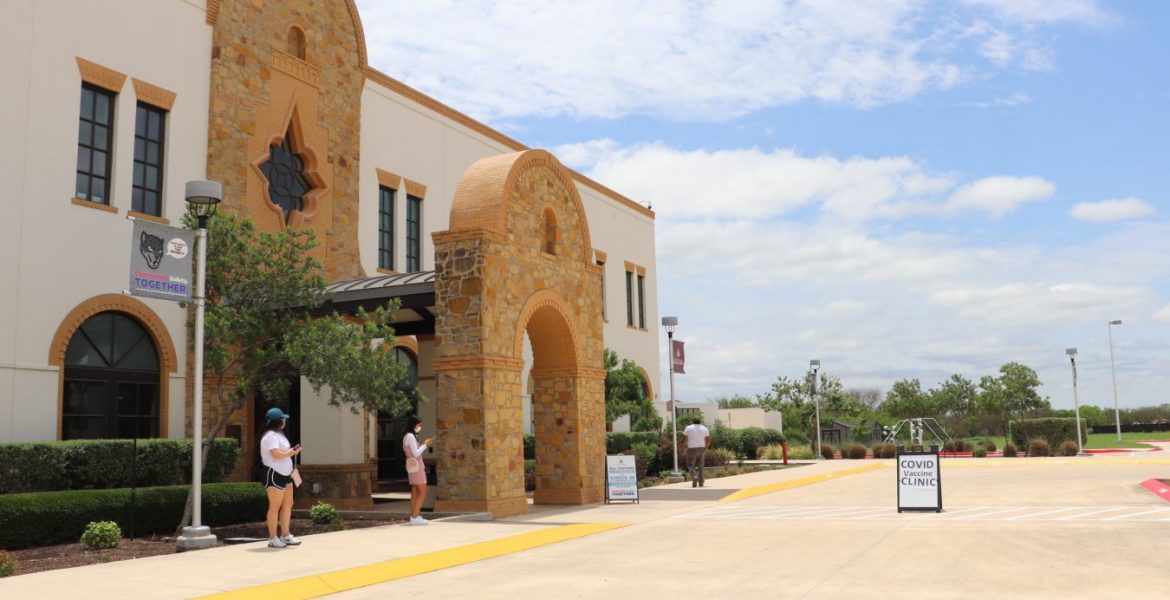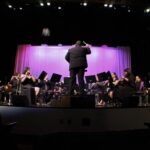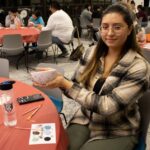Communications junior Victoria Perez started off the semester with a congested nose and cough. Perez, believing it was allergies, continued attending her in-person classes as scheduled Jan. 10 and 11.
“I went to class on Tuesday, not thinking anything of it, and then Tuesday night I still had congestion and cough and then I started getting the chills,” Perez said.
On Jan. 12, Perez tested positive for COVID-19. She received the PCR test at the modulars and took a rapid test at Patriots’ Casa. There, Perez said she was pulled aside and told to report her positive test to the self-reporting portal on the university website. Perez reported her case to the university on Jan. 12.
Perez said she had understood the university would be contacting her following her positive COVID test either that same day or the following day, but she did not hear from anyone until Jan. 19.
She is one of several students who have experienced miscommunication with Texas A&M University-San Antonio’s COVID case management team. COVID-positive students said they have felt confused and needed guidance during this time.
George Shelton, instructional assistant professor of chemistry and program director of physical science, said he believes there are more absences and feels more students in his classes are contracting COVID.
“Most of my colleagues and I comment about how many potential COVID cases we have in our classes,” Shelton said.
The Mesquite emailed Jamie Garcia, student COVID case manager, on Jan. 24. Garcia did not answer by deadline.
Psychology senior Cryena De Leon submitted three reports to the portal. By the time she had submitted the third on Jan. 18, she hadn’t received a response about her other two submissions.
“I had done one when I found out I was in close contact (with people who tested positive), I had done another one when I started showing symptoms and then I did another one when I tested positive,” De Leon said.
The Community. Safety. TOGETHER. website has reported a total of 559 COVID cases among employees and students for the spring semester.
De Leon tested positive Jan. 18 at an off-campus testing site.
De Leon said since she hadn’t heard back from the university, she notified her professors that she’d been exposed to COVID before she found out she had contracted it herself.
Most of her professors were understanding and gave her guidance when she notified them, De Leon said. One professor refused to give her instructions until she heard from the university.
“Later, I found out that they (the COVID case management team) only contact your professors if you test positive,” De Leon said. “The first two times that I reported, my teachers didn’t hear anything. So I think they should be contacted regardless just because you’re going to be out.”
De Leon said if she’d had more severe symptoms, she wouldn’t have been able to contact her professors herself and they wouldn’t have been notified about her condition.
De Leon said she doesn’t know if her professors will excuse all her absences.
De Leon said according to her Biology II lab syllabus, if students miss three labs they cannot pass the class despite having those absences excused.
“In the syllabus, it’s not outlined if there’s an exception to COVID,” De Leon said.
Shelton said faculty receive emails from the dean of students excusing students from class, though faculty do not know the reason they won’t be attending class.
“The self-reporting portals connect you to the dean of students, who at most universities is the way you go about getting an excused absence,” Shelton said. “When we get a report from the dean of students who says a student is going to be out for the next two classes, the next three or whatever, we’re not told why.”
Faculty are not told if students have contracted COVID due to privacy reasons.
“Myself, I would like to have known…if a student who had tested positive for COVID had attended my class that day,” Shelton said.
Mark Weichold, interim provost and vice president for academic affairs, said the university is handling the increase of COVID cases by communicating to deans and faculty they have the option to move to an online classroom if needed.
“If there’s just a relatively modest number of students who are not able to come to class, we’ve also informed the deans and the faculty that if they want to make materials available to the students electronically …they can do that as well. Again, it’s up to the faculty to make those decisions,” Weichold said.
Weichold did not have further information about increasing COVID cases among students.
Perez said she let her professors know she had COVID and told them she hadn’t been contacted by the COVID case managers.
“I think the (university’s) communication did lack,” Perez said. “I took it as they had an overload of students testing positive so I was giving them the benefit of the doubt.”
Perez said there is no number to reach the COVID case management team on their website, which was a “major inconvenience.” Perez did receive phone numbers to call in an email.
Business junior Donald Harper tested positive on Jan. 20 after testing in the modulars.
“When I tested positive, I wasn’t showing symptoms,” Harper said. “The week before I tested positive, I was showing symptoms.”
Harper said he received a negative COVID test on Jan 9. The next day, he had a scratchy throat and went to get tested again, but it came back negative.
Once he tested positive, Harper said he reported it to the university. Harper received three emails from the university reminding him to report his COVID case.
As a member of the golf team, Harper said his trainer and golf coach contacted him and informed him of the COVID protocol. Harper was told to quarantine for five days and was allowed to return to campus if he didn’t show symptoms and wore a face mask for five days until cleared by the team doctor.
“I didn’t communicate with them (the university) because I didn’t really think my case was severe,” Harper said. “If I was kind of struggling, I would have.”
Perez said she heard from a professor about when she was cleared to return to campus instead of hearing it from a COVID case manager.
On Jan. 19, the university emailed Perez, a few days before she was allowed to go back on campus on Jan. 23.
De Leon said she received a letter from the university on Jan. 28. As of then, she was unaware if her professors were notified.






